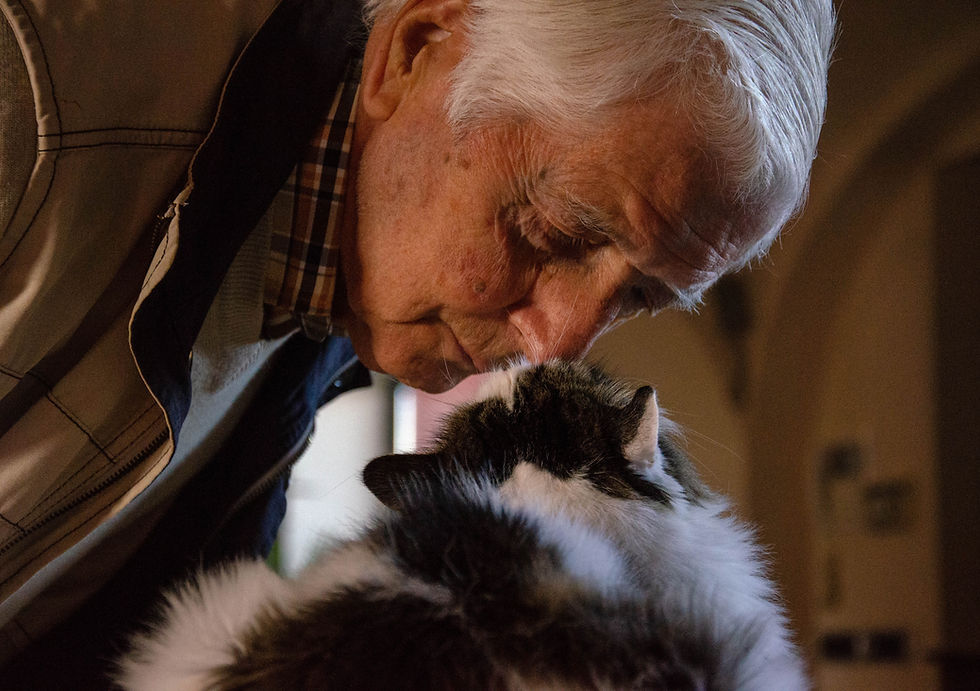Navigating Senior Pet Care: Tips for Aging Companions
- Lonsdale Place Veterinary Clinic

- 2 days ago
- 2 min read

At Lonsdale Place Veterinary Clinic, we understand that caring for a senior pet requires a proactive and compassionate approach. As pets age, their needs evolve—both physically and emotionally. With the right support, older dogs and cats can continue to enjoy a high quality of life well into their golden years. North Vancouver Vet
Nutrition and Diet
Senior pets often benefit from specially formulated diets that support aging bodies. These diets may be lower in calories to prevent weight gain and include ingredients that promote joint health, cognitive function, and organ support. Prescription diets may also be necessary if your pet develops chronic conditions such as kidney disease or arthritis. A veterinarian can help you choose the most appropriate food based on your pet’s individual health status. North Vancouver Vet
Routine Veterinary Care
Regular veterinary check-ups are essential as pets age. Older pets should be examined at least once a year—ideally every six months—to monitor for early signs of disease. Routine bloodwork, urinalysis, and physical exams help detect issues such as thyroid disease, diabetes, or heart problems before they become advanced. Early intervention often results in better outcomes and improved quality of life. North Vancouver Vet
Exercise and Mobility
While older pets may slow down, regular low-impact exercise remains important. Daily walks, gentle play, or tailored physical therapy exercises help maintain muscle tone, joint flexibility, and cardiovascular health. Monitoring your pet for signs of stiffness, reluctance to move, or difficulty rising is important, as these can indicate arthritis or other mobility issues that may benefit from veterinary care or pain management.
North Vancouver Vet

Cognitive and Behavioral Changes
Some senior pets experience changes in behavior due to cognitive dysfunction syndrome, a condition similar to dementia in humans. Symptoms may include disorientation, altered sleep patterns, decreased interaction, or house soiling. Although not curable, these signs can often be managed with dietary supplements, medications, and environmental enrichment. If you notice changes in your pet’s behavior, consult your veterinarian. North Vancouver Vet
Environmental Modifications
Making small changes to your home can significantly improve your senior pet’s comfort and safety. Consider using non-slip rugs on hard floors, providing orthopedic bedding, adding ramps or stairs to help them access furniture, and ensuring easy access to food, water, and litter boxes. For cats, larger litter boxes with lower sides can be easier to use as they age. North Vancouver Vet
Emotional Support and Quality Time
Senior pets thrive with companionship and routine. Continue spending quality time together through calm activities like gentle grooming, short walks, or simply relaxing nearby. Monitoring your pet’s quality of life and addressing any changes promptly can help them remain content and comfortable in their later years.
With attentive care and regular veterinary support, aging pets can continue to live happy, fulfilling lives. If you have questions or need help creating a care plan for your senior dog or cat, the team at Lonsdale Place Veterinary Clinic is here to support you every step of the way. North Vancouver Vet



